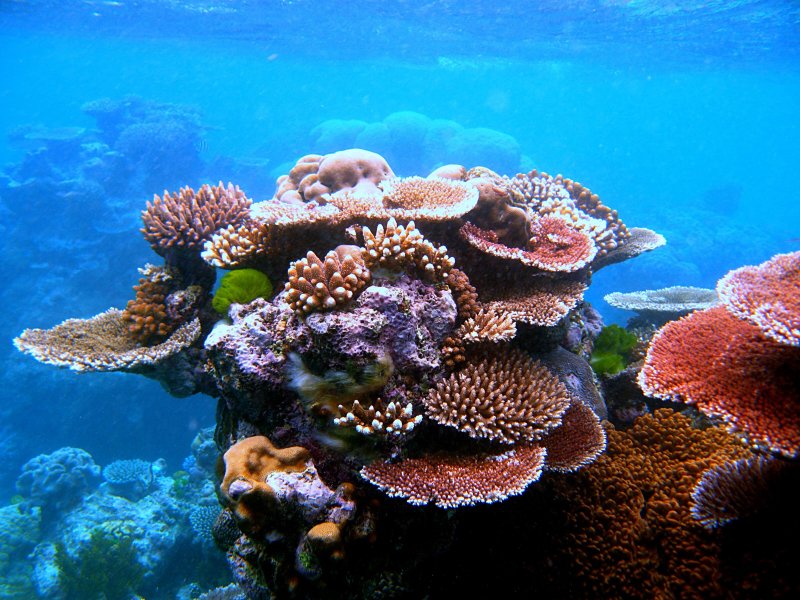With the world’s coral reefs increasingly threatened by warmer and more acidic seas, scientists are selectively breeding corals to create species with the best chance to survive in the coming century and beyond. Are genetically modified corals next?
Ruth Gates of the Institute of Marine Biology in Kaneohe and Madeleine van Oppen at the Australian Institute of Marine Science, are working on the “assisted evolution” of corals. “This idea of homing in on super-performers is a no-brainer,” says Gates. “We have been doing it in the food supply for millennia.
The work can be controversial — some find the idea of active intervention in coral ecosystems disconcerting. The idea of tinkering with coral genetics is even touchier, even if current work focuses on simple selective breeding for the hardiest corals, rather than producing corals that have been genetically modified.
But studies have shown that the rate at which corals calcify their hard shells has declined by 15 to 30 percent since 1990 thanks to thermal stress; and about 20 percent of global coral coverage has been lost since 1950. The culprit is climate change — heat devastates the symbiotic algae living within coral and bleaches it — along with rising acidity that literally dissolves coral bodies.
Van Oppen says they’re “playing around a bit” with making genetically modified (GM) corals designed to cope with heat or acid. “But,” she quickly adds, “that’s when you start to hear a lot of resistance.”
Van Oppen predicts that resistance to these projects will fade as time passes and the plight of corals gets worse.
The GLP aggregated and excerpted this blog/article to reflect the diversity of news, opinion and analysis. Read full, original post: As Ocean Waters Heat Up, A Quest to Create ‘Super Corals’































